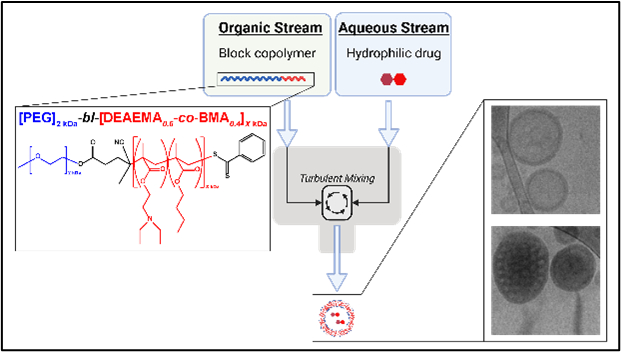Vanderbilt researchers have developed a new nanoparticle that can more effectively get drugs inside of cells to boost the immune system and fight diseases like cancer.
The research is led by John Wilson, associate professor of chemical and biomolecular engineering and biomedical engineering, as well as a corresponding author on the paper about the research that was recently published in the journal Nanoscale.

Wilson, who is Principal Investigator of the Immunoengineering Lab at Vanderbilt and a Chancellor Faculty Fellow, and his team created a polymeric nanoparticle that can penetrate cell membranes and get drugs into the cytosol – or liquid – inside cells.
One example is a molecule called cGAMP, which essentially boosts the immune system by detecting and responding to viral infections. On its own, cGAMP can have difficulty entering the cell. But when loaded within the nanoparticle, it has better access.
The researchers also demonstrated that the polymeric nanoparticle can slow tumor growth and extend survival in a mouse model of melanoma. Additionally, they said the new method is scalable.
“The implications of our paper are that our nanoparticle can be reproducibly manufactured at an industrial scale, which is a requirement for any mass manufactured drug product,” said Hayden Pagendarm, a NSF Graduate Research Fellow and co-author on the paper.
Payton Stone, another co-author and NSF Graduate Research Fellow, said the research can be tuned for use with a wide variety of drug cargos.
“The innovative particle formulation strategy detailed in this paper will allow us to optimize our platform for the loading of various immune modulators in the future,” said Stone.
Last year, Wilson was among a team of Vanderbilt engineers, biologists and education specialists that received a $3 million grant from the National Science Foundation to advance large-scale biomanufacturing of cell-derived nanoparticles that can deliver precisely targeted drugs to the site of a disease.
Contact: Lucas Johnson, lucas.l.johnson@vanderbilt.edu